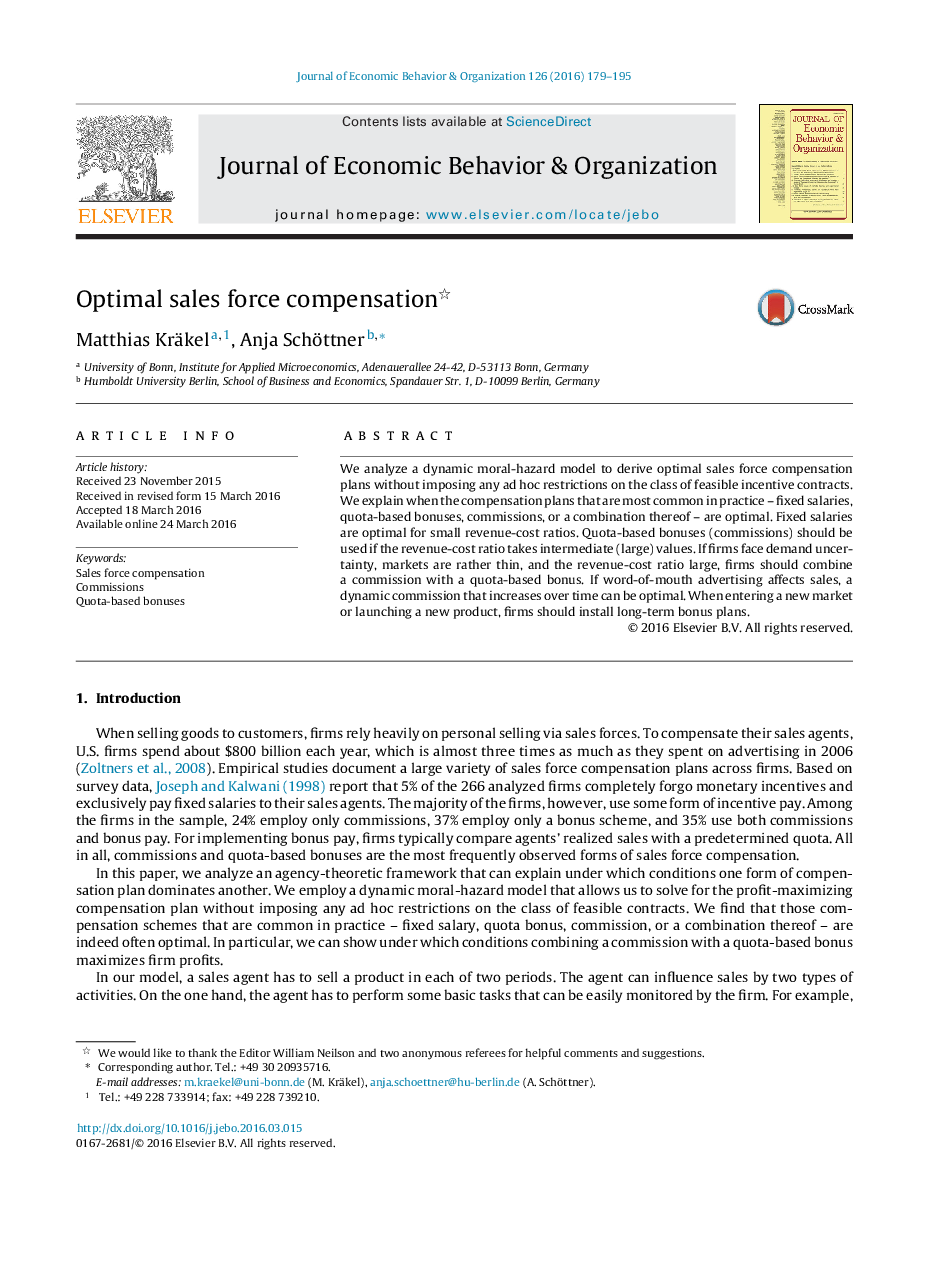| Article ID | Journal | Published Year | Pages | File Type |
|---|---|---|---|---|
| 883399 | Journal of Economic Behavior & Organization | 2016 | 17 Pages |
•We analyze optimal sales force compensation plans within a two-period setting.•Compensation plans that are most common in practice turn out to be indeed optimal.•They comprise fixed salaries, sales quotas, commissions, and a combination thereof.•We discuss demand and preference uncertainty and further extensions as robustness checks.
We analyze a dynamic moral-hazard model to derive optimal sales force compensation plans without imposing any ad hoc restrictions on the class of feasible incentive contracts. We explain when the compensation plans that are most common in practice – fixed salaries, quota-based bonuses, commissions, or a combination thereof – are optimal. Fixed salaries are optimal for small revenue-cost ratios. Quota-based bonuses (commissions) should be used if the revenue-cost ratio takes intermediate (large) values. If firms face demand uncertainty, markets are rather thin, and the revenue-cost ratio large, firms should combine a commission with a quota-based bonus. If word-of-mouth advertising affects sales, a dynamic commission that increases over time can be optimal. When entering a new market or launching a new product, firms should install long-term bonus plans.
